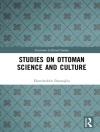Throughout Germany’s tumultuous twentieth century, photography was an indispensable form of documentation. Whether acting as artists, witnesses, or reformers, both professional and amateur photographers chronicled social worlds through successive periods of radical upheaval. The Ethics of Seeing brings together an international group of scholars to explore the complex relationship between the visual and the historic in German history. Emphasizing the transformation of the visual arena and the ways in which ordinary people made sense of world events, these revealing case studies illustrate photography’s multilayered role as a new form of representation, a means to subjective experience, and a fresh mode of narrating the past.
विषयसूची
List of Illustrations
Acknowledgements
Introduction: Photography as an Ethics of Seeing
Jennifer Evans
Chapter 1. Thoughts on Photography and the Practice of History
Elizabeth Edwards
Chapter 2. Seeing the ‘Savage’ and the Suspension of Time: Photography, War and Concentration Camps in South West Africa, 1904-1908
Claudia Siebrecht
Chapter 3. The “Face of War” in Weimar Visual Culture
Annelie Ramsbrock
Chapter 4. Documenting Heimkehr: Photography, Displacement and “Homecoming” in the Nazi Resettlement of Ethnic Germans, 1939-1940
Elizabeth Harvey
Chapter 5. Visible Trophies of War: German Occupiers’ Photographic Perceptions of France, 1940-44
Julia Torrie
Chapter 6. Gazing at Ruins: German Defeat as Visual Experience
Stefan-Ludwig Hoffmann
Chapter 7. Edmund Kesting’s Polyphonic Portraits and the Abstract Face of the Socialist Self in East Germany
Sarah E. James
Chapter 8. Seeing Subjectivity: Erotic Photography and the Optics of Desire
Jennifer Evans
Chapter 9. Photographing Reurbanization in West Berlin, 1977-84
Anna Ross
Chapter 10. The Diversification of East Germany’s Visual Culture
Candice M. Hamelin
Chapter 11. The Intimacy of Revolution: 1989 in Pictures
Paul Betts
Epilogue: Hope Flies, Death Dances: Moving Toward an Ethics of Seeing
Julia Adeney Thomas
Index
लेखक के बारे में
Jennifer Evans is Professor of Modern European History at Carleton University in Ottawa Canada. She has co-edited several books on same-sex desire in twentieth-century Europe, including Queer Cities, Queer Cultures: Europe since 1945 (2014) and Was ist Homosexualität? (2014), in addition to her monograph Life among the Ruins: Cityscape and Sexuality in Cold War Berlin (2011). She recently edited a special issue of German History entitled “Queering German History.”












